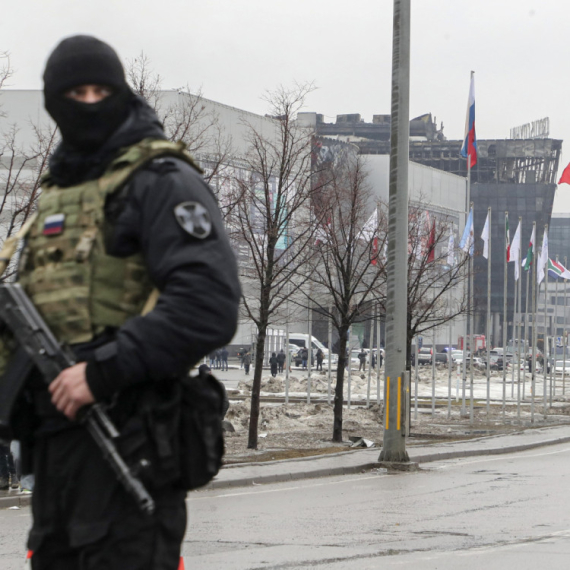Public enterprises account for most losses
In 2012, companies in Serbia had losses adding up to RSD 63 billion, in which public enterprises had a share of higher than 45 billion.
Thursday, 13.06.2013.
10:28

BELGRADE In 2012, companies in Serbia had losses adding up to RSD 63 billion, in which public enterprises had a share of higher than 45 billion. This was seven times more than in 2011, the Agency for Commercial Registers (APR) has announced. Public enterprises account for most losses Out of nearly 500 public enterprises with over 200,000 employees, a total of 198 ended 2012 with a loss that makes up four fifths of all losses in the Serbian economy, Tanjug reported. The most successful company in terms of profit was NIS with RSD 49.5 billion, and the biggest loss was that of the Srbijagas public company, RSD 35.1 billion. "Also on the list of the 100 most successful companies according to profit were the Telekom Srbija with RSD11.3 billion, Telenor (10.6), Tarkett (9.8) and Sunoco," the registrar at the Registry of Financial Reports and Standings of the APR, Ruzica Stamenkovic, said at the news conference. She also explained that the list of 100 companies with the heaviest losses was led by Serbian Railways (RSD 16.6 billion), Petrohemija (12.4), VIP Mobile (8.3), and Putevi Srbije (7.8 billion). The APR stated that, of the total number of companies in Serbia, 38.3 percent, or 35,030, are solvent, Beta reported. The losses of public enterprises in 2012 increased seven times relative to 2011 and experts warn that a sudden increase of government guarantees for public enterprises has been recorded over the past few years. The value of guarantees issued to public enterprises totalled over EUR 1.7 billion in late 2011. Public enterprises and other companies funded by the government have been the biggest source of losses in the local economy for years now, stated Dragoljub Rajic of the Union of Employers of Serbia which represents small and mid-size companies. In a statement for Tanjug, Rajic stated that despite the monopoly position of public enterprises, 45 percent of their market value has been 'eaten away' over the past ten years due to inexpert management and amassed losses. Professor Ljubodrag Savic of the Belgrade Faculty of Economics does not believe in the Union's assessments and thinks they are exaggerated. He agreed that good and integral reform of public enterprises is needed immediately. "It also has to taken into account that public enterprises are most often the victims of economic and social policy which wants to protect citizens' living standards by low and non-market prices of electricity or gas and this directly forces public enterprises to losses," Savic told Tanjug. The government should adopt a series of measures for overcoming the current economic crisis by the end of the week, and one of the most important decisions should also affect the status of public enterprises and the employees' position in the companies. Ruzica Stamenkovic (Beta) Beta Tanjug
Public enterprises account for most losses
Out of nearly 500 public enterprises with over 200,000 employees, a total of 198 ended 2012 with a loss that makes up four fifths of all losses in the Serbian economy, Tanjug reported.The most successful company in terms of profit was NIS with RSD 49.5 billion, and the biggest loss was that of the Srbijagas public company, RSD 35.1 billion.
"Also on the list of the 100 most successful companies according to profit were the Telekom Srbija with RSD11.3 billion, Telenor (10.6), Tarkett (9.8) and Sunoco," the registrar at the Registry of Financial Reports and Standings of the APR, Ružica Stamenković, said at the news conference.
She also explained that the list of 100 companies with the heaviest losses was led by Serbian Railways (RSD 16.6 billion), Petrohemija (12.4), VIP Mobile (8.3), and Putevi Srbije (7.8 billion).
The APR stated that, of the total number of companies in Serbia, 38.3 percent, or 35,030, are solvent, Beta reported.
The losses of public enterprises in 2012 increased seven times relative to 2011 and experts warn that a sudden increase of government guarantees for public enterprises has been recorded over the past few years.
The value of guarantees issued to public enterprises totalled over EUR 1.7 billion in late 2011.
Public enterprises and other companies funded by the government have been the biggest source of losses in the local economy for years now, stated Dragoljub Rajić of the Union of Employers of Serbia which represents small and mid-size companies.
In a statement for Tanjug, Rajić stated that despite the monopoly position of public enterprises, 45 percent of their market value has been 'eaten away' over the past ten years due to inexpert management and amassed losses.
Professor Ljubodrag Savić of the Belgrade Faculty of Economics does not believe in the Union's assessments and thinks they are exaggerated.
He agreed that good and integral reform of public enterprises is needed immediately.
"It also has to taken into account that public enterprises are most often the victims of economic and social policy which wants to protect citizens' living standards by low and non-market prices of electricity or gas and this directly forces public enterprises to losses," Savić told Tanjug.
The government should adopt a series of measures for overcoming the current economic crisis by the end of the week, and one of the most important decisions should also affect the status of public enterprises and the employees' position in the companies.





































Komentari 5
Pogledaj komentare